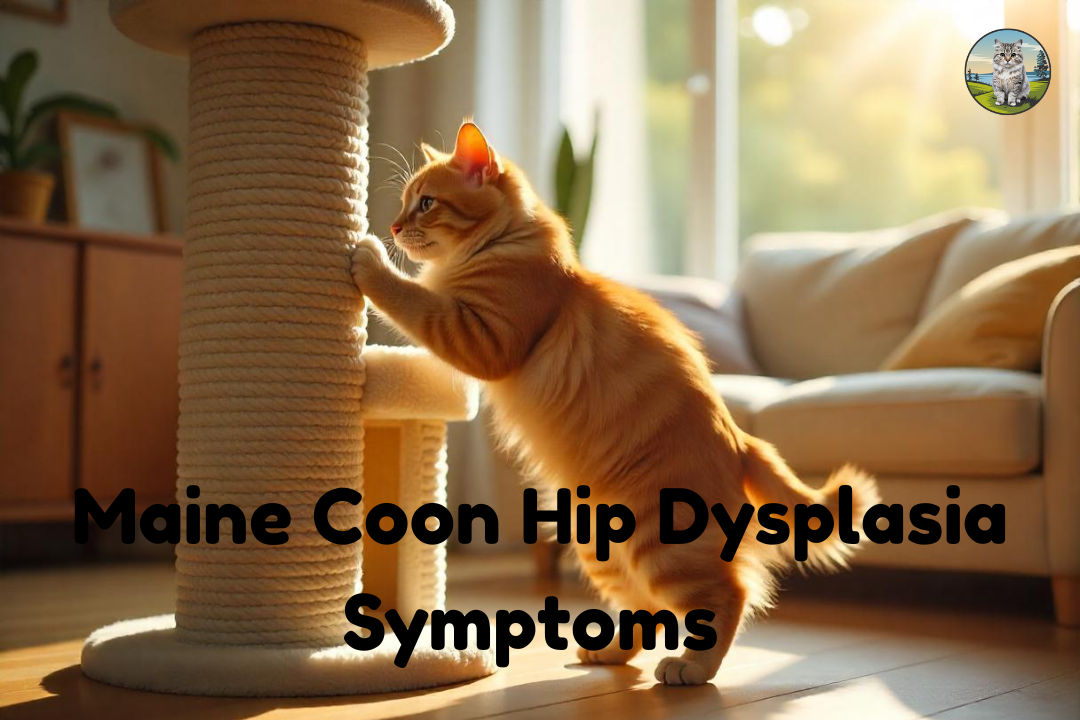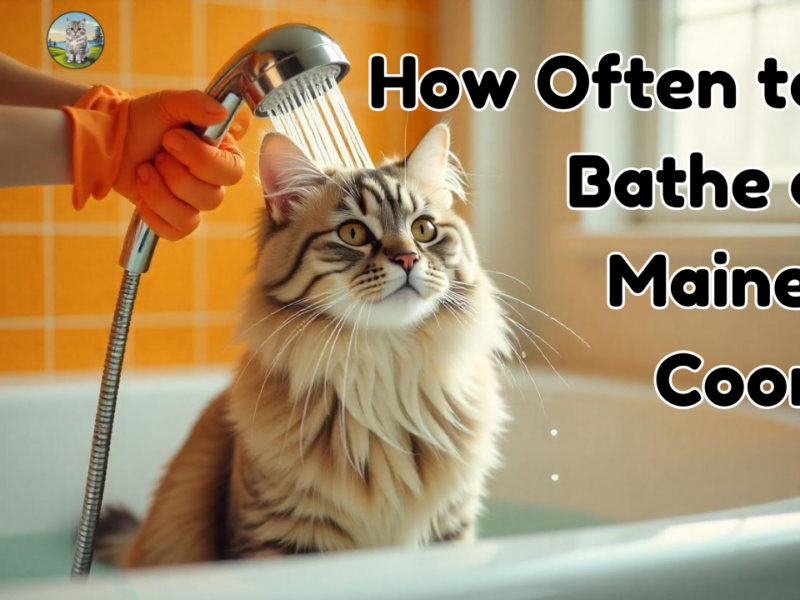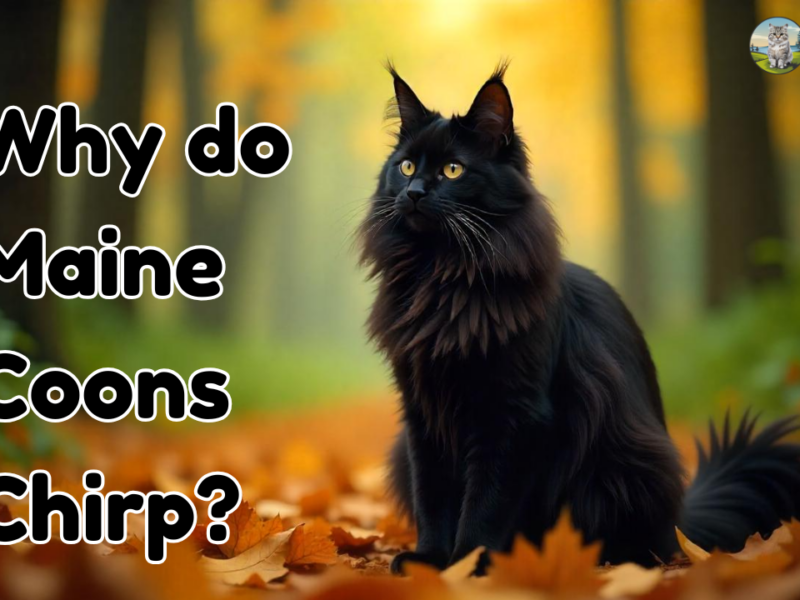Maine Coon cats are big, fluffy, and full of personality. But their large size can sometimes lead to health problems, like hip dysplasia. If your Maine Coon seems stiff, has trouble jumping, or moves differently, they might have this condition.
In this easy-to-understand guide, we’ll cover:
✔ Common Maine Coon hip dysplasia symptoms
✔ What causes hip dysplasia in cats
✔ How to help your cat feel better
✔ Prevention tips
Let’s get started!
What Is Hip Dysplasia in Maine Coon Cats?
Hip dysplasia happens when the hip joint doesn’t form correctly. Instead of fitting smoothly, the ball and socket rub together, causing pain and stiffness. Over time, this can lead to arthritis.
While hip dysplasia is more common in dogs, big cats like Maine Coons can get it too. The good news? Catching it early can make a big difference in your cat’s comfort.
Signs of Hip Dysplasia in Maine Coons
Cats are good at hiding pain, so you’ll need to watch closely for these Maine Coon hip dysplasia symptoms:
1. Trouble Jumping or Climbing
- Your cat hesitates before jumping on furniture.
- They avoid high places they used to love.
2. Limping or Stiff Walking
- They walk stiffly, especially after resting.
- You might notice a slight limp.
3. Less Playful Than Usual
- They don’t run or chase toys like before.
- They seem lazy or less interested in playing.
4. “Bunny-Hopping” Walk
- Instead of walking normally, they hop with both back legs together.
5. Licking or Chewing Their Hips
- They might lick or bite their hip area a lot because it hurts.
6. Muscle Loss in Back Legs
- Their back legs might look thinner from lack of use.
7. Clicking Sounds When Moving
- In bad cases, you might hear a clicking noise when they walk.
If you see any of these signs of hip dysplasia in cats, take your Maine Coon to the vet.
What Causes Hip Dysplasia in Cats?
Several things can lead to hip dysplasia in Maine Coons:
1. Genetics
- If their parents had hip problems, they’re more likely to have them too.
2. Growing Too Fast
- Maine Coons are big cats, and fast growth can sometimes cause joint issues.
3. Being Overweight
- Extra weight puts more stress on their joints.
4. Poor Diet
- Food without enough joint-supporting nutrients can make problems worse.
5. Injury
- A bad fall or jump can damage their hips over time.
How to Help a Maine Coon with Hip Dysplasia
While hip dysplasia can’t be cured, you can help your cat feel better with these CatTopTips:
1. Keep Them at a Healthy Weight
- Extra pounds make hip pain worse. Ask your vet for feeding tips.
2. Give Joint Supplements
- Glucosamine and fish oil can help their joints feel better.
3. Encourage Gentle Play
- Use toys that don’t require big jumps, like feather wands.
4. Provide Soft Bedding
- A cozy, padded bed supports their joints while they rest.
5. Try Gentle Massage
- Rubbing their hips gently can ease stiffness (ask your vet how first).
6. Ask About Pain Relief
- If your cat is in a lot of pain, the vet might prescribe medicine.
7. Surgery (For Severe Cases)
- In extreme cases, surgery can help. Your vet will explain the options.
Preventing Hip Dysplasia in Maine Coons
You can’t always stop hip dysplasia, but these steps can lower the risk:
✔ Buy from a Good Breeder – Make sure they test for hip problems.
✔ Feed High-Quality Food – Look for food with joint-supporting ingredients.
✔ Watch Their Weight – Don’t let them get too heavy.
✔ Start Supplements Early – Giving joint supplements while they’re young can help.
Final Thoughts
If your Maine Coon shows signs of hip dysplasia, don’t wait—see a vet right away. With the right care, your cat can still live a happy, comfortable life.
By keeping them at a healthy weight, giving joint supplements, and making small changes at home, you can help them move easier and stay playful for years to come.
For more CatTopTips on keeping your Maine Coon healthy, check out our other guides!


